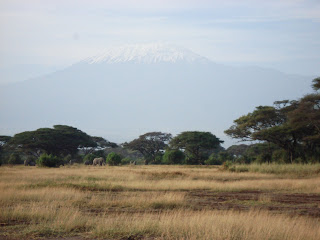


This is the last post, but has been in the making from near the beginning. I am back home in Beautiful BC, but want to highlight one more aspect of my trip. Early on, we were introduced to a local (in Mengo, Kampala) boy's orphanage by a young nurse from Vermont working at Mengo hospital. This 'brigade' is a Christian-based initiative headed by Abby and Toni- two young men with a vision (successful) to help some of the country's orphaned children. Abby's grandmother has donated her garage to the group, which has been converted into a dormatory for approximately 12 orphaned lads aged ~6 to ~16. The group also serves a wider social purpose, and includes non-orphaned members who participate in the band. On my first visit there, we were treated to a rousing performance of music and acrobatics. It is hard to describe the sense of positivity that the group brings into the lives of these young people, literally the future of the country, orphaned, in most cases, by AIDS. Apart from music, they educate the boys through informal 'life skills' lessons and invited guest lecturers. The nurse from Vermont was one of these, and Chelsea and I took part as well. Little did I know when I left that I would have a group of young boys yelling things like urethra! and epididymus! during a puberty lesson! Finally, the group uses the funds generated by playing at functions to pay for secondary school fees, as no education past primary is funded by the government. This is a huge issue in itself, and results in many, many children unable to learn, and caught in a cycle of poverty. Again, it is a huge issue that I can't get into here.
Now that I have pulled at the heart-strings, it is time for the pitch:
Chelsea and I were so inspired by the group that we knew we had to help out. We could have simply donated from our relative wealth, but felt we could do something even more profound and lasting (we hope!)
We bought craft supplies, and had the boys construct wallets from bark cloth (a rough fibrous material) and cards with their artwork and personal story.
We brought these back home in order to sell them (at a significant markup!) and send absolutely all the profits back into the programme, one that we have seen first hand works.
A tentative price list is $10 for a wallet, 4$ for a card, and 13$ for both.
If this interests you, please contact me at c.h.newcombe@gmail.com, or Chelsea at chelsea.mccullough@gmail.com
Thanks to everyone for reading!
Chris Newcombe











































